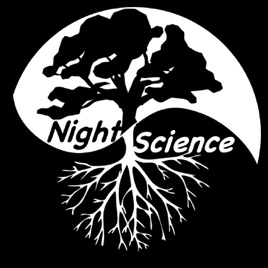
Advertise on podcast: Night Science
Rating
5 from
Country
This podcast has
54 episodes
Language
Publisher
Explicit
No
Date created
2021/04/16
Average duration
38 min.
Release period
14 days
Description
Where do ideas come from? In each episode, scientists Itai Yanai and Martin Lercher explore science's creative side with a leading colleague. New episodes come out every second Monday.
Podcast episodes
Check latest episodes from Night Science podcast
Todd Golub and bottom-up creativity
2024/02/26
Prof. Todd Golub, the Director of the Broad Institute of MIT and Harvard, has made important contributions to cancer research. In this episode, he argues that creativity is the greatest hallmark of a successful scientist, and he tells us about his artist-in-residence program at the Broad. As its director, he aims to hire researchers who look like they'll be changing fields in the future, combining boldness with humility – the "blank slate" with which they enter the new field is the best recipe for creativity. We discuss how the best projects cannot be designed but instead evolve from the bottom up; and how the worst projects are those that succeed but are so incremental that no one cares.
For more information on Night Science, visit https://www.biomedcentral.com/collections/night-science .
more
Sean B. Carroll – he told some good stories
2024/02/12
Sean Carroll is a world-renowned scientist, author, educator, and an Oscar-nominated film producer. Sean sees storytelling as the key to all he does. Similar to how musicians get inspiration by listening to other people’s music, Sean attributes his own creativity to his insatiable habit of reading about other people’s science – that’s how he “fertilizes his garden”. To tell a good story, he urges us to seek the emotions. But storytelling is not just for communication: in a research project, we also must develop a narrative, connecting the dots.
For more information on Night Science, visit https://www.biomedcentral.com/collections/night-science .
more
Nigel Goldenfeld and the jazz of impossible problems
2024/01/29
Nigel Goldenfeld is the Chancellor's Distinguished Professor in Physics at the University of California at San Diego. In this episode, he talks with us about how research is an art form, and how he tries to help graduate students make the transition from being a “classical musician”, where the goal is to faithfully reproduce every note supplied by the composer, to being a “jazz musician”, where collaborators have to develop the beauty of the composition – or here, the science – on the spot. Nigel emphasizes the importance of suspending disbelief in the resulting improvisations, and the need to feel free to say stupid things. He points out that if our work’s impact is measured by the ratio of what we contribute to what everyone else contributed, then the easiest way to make a big impact is by minimizing the denominator – to work on something that no one else is working on. And the three of us argue whether the optimal group size for improvisational scientific discussions is two or three people.
This episode was supported by Research Theory (researchtheory.org) and the Independent Media Initiative (theimi.co). For more information on Night Science, visit https://www.biomedcentral.com/collections/night-science .
more
It takes two to think
2024/01/15
Despite the variety of creative approaches practiced by different scientists, one tried-and-true though often overlooked — trick for generating new ideas stands out. It may sound trivial, yet it is as reliable as it is simple: talk to someone. By talking with other people, we not only pool the information or ideas that each of us individually lacks, but we are also able to improvise new thoughts that are not accessible to us alone. In this episode, Itai Yanai and Martin Lercher talk through the ideas in two of their editorials (available at https://www.nature.com/articles/s41587-023-02074-2 and https://genomebiology.biomedcentral.com/articles/10.1186/s13059-021-02575-w).
more
Rich White on living on the edge cases
2024/01/08
Rich White studies cancer as a professor at Oxford University. Rich is not only a brilliant physician-scientist but also a great friend of Itai Yanai, one of the two Night Science hosts. In this episode, Rich talks about how often the process that led to a particular result can be more interesting than the result itself – something that is true not only in science but also in fields such as art or writing. He emphasizes that the best research strategy depends greatly on the researcher’s personality. He himself thrives on being on the edge of a field, ideally working on a common question with scientists from different disciplines or even philosophers and historians. Rich recounts how he identifies new questions by finding connections between the edge cases of several papers – observations the authors couldn’t make sense of, but still put in their manuscripts. And Rich and Itai reveal the true story behind one of their joint papers, where the breakthrough came in an open-ended creative meeting from staring at the data – after a first, much more boring draft had already been written!
This episode was supported by Research Theory (researchtheory.org) and the Independent Media Initiative (theimi.co). For more information on Night Science, visit https://www.biomedcentral.com/collections/night-science .
more
Carolyn Bertozzi and a long game called science
2023/12/25
Carolyn Bertozzi is a Professor at Stanford University. In 2022, she was awarded the Nobel Prize in Chemistry. In this episode we talk about how the process of science is unstructured, so you don’t know when and where the next idea is going to come – sometimes even at the supermarket checkout line. For Carolyn, science is a long game, where one person’s negative result might be picked up a decade or a century later, leading to a new breakthrough. When a field is just being born, its new members may have a difficult time finding positions in academia and industry, as they are not experts in any traditional field. And Carolyn tells us how being in a band with Tom Morello, the guitarist of Rage Against The Machine, taught her about the personal chemistry required for running a successful lab.
This episode was supported by Research Theory (researchtheory.org) and the Independent Media Initiative (theimi.co). For more information on Night Science, visit https://www.biomedcentral.com/collections/night-science .
more
Stephen Quake and the Creative Network
2023/12/11
Stephen Quake is a Stanford University professor and the Head of Science at the Chan Zuckerberg Initiative (CZI). Among his many inventions are DNA sequencing methods for non-invasive prenatal testing. In this episode, Steve tells us about his tricks for the creative scientific process, including the surprising usefulness of jetlag, the role of generosity – rather than a transactional approach – in collaborations, and the art of making progress in fields that are new for you, including a high threshold for embarrassment. Throughout the research process, Steve encourages his team to keep the faith that something interesting will happen. Training for young scientists should include a place for students to make mistakes, Steve observes, as the need to always be correct is not conducive to research.
This episode was supported by Research Theory (researchtheory.org) and the Independent Media Initiative (theimi.co). For more information on Night Science, visit https://www.biomedcentral.com/collections/night-science .
more
John Mattick and doing what your mother taught you
2023/11/27
John Mattick is Professor of RNA Biology at the University of New South Wales in Sydney, Australia. For decades, he has been on a mission to show that the large portions of the human genome that many scientists consider useless "junk" instead have important regulatory functions. In this episode, he tells us that his creative process involves always seeing things from different perspectives – something he learned as a teenager listening to the debates of his mother and her sisters. He reveals how publishing a manifesto can supercharge your research. We discuss how science lurches from paradigm to paradigm, and how the current best guess, if untestable at the time, can become accepted wisdom. And he tells us that he advises his graduate students that it's very hard to be creative when you're still in the fog of ignorance, but that they should always look for the things that don't make sense to them - sometimes that's a clue to something worth chasing.
For more information on Night Science, visit https://www.biomedcentral.com/collections/night-science .
more
Peter Ratcliffe on being the Master of Daydreams
2023/11/13
Peter J. Ratcliffe shared the 2019 Nobel Prize in Physiology or Medicine for his work on oxygen sensing in animal cells. He directs research institutes in London and Oxford. In this episode, he reveals the interplay between dissociation – daydreaming – and interaction with colleagues as a major source of his scientific creativity. He emphasizes that to make an important discovery, you must define your own question, even as everyone – from colleagues to editors and funders – will try to convince you otherwise. We discuss how too much planning can make you unhappy, and how everyone overestimates the information transfer in lectures and presentations.
For more information on Night Science, visit https://www.biomedcentral.com/collections/night-science .
more
Christina Curtis and keeping the faith in the process
2023/10/30
Christina Curtis is a Professor of Medicine and the Director of Artificial Intelligence and Cancer Genomics at Stanford University’s Cancer Institute. Among her many achievements is the conception of the “Big Bang Theory” of tumor biology. In this episode, she tells us how not being biased by assumptions of what we know has been very helpful in her research. We talk about how her background in statistical genetics has shaped her cancer research. We also discuss how the despair of not understanding is a phase that occurs in almost any research project, and we discuss the use of generative AI in the creative scientific process.
For more information on Night Science, visit https://www.biomedcentral.com/collections/night-science .
more
Daniel Dennett’s intuition pumps
2023/10/16
Daniel Dennett, Professor at Tufts University, may be the most important living philosopher, tackling the biggest questions around: what is consciousness, do we have free will, how does evolutionary adaptation occur? In this episode, Dan tells us about some of his ‘intuition pumps’ - tools that are as indispensable for thinking as hammers and saws are for carpentry. We discuss how creativity really is just a bag of tricks, what Descartes‘ biggest mistake was, and how to ‘jump out of the system‘ to make creative leaps. Dan tells us about how magic tricks can teach us about thinking, and how an irrational fear of the intentional stance can slow us down. And Dan assures us that when we scientists wonder what is the right way to phrase a research question, we‘re really doing philosophy.
For more information on Night Science, visit https://www.biomedcentral.com/collections/night-science .
more
Howard Stone on how to tilt your head for discovery
2023/09/25
Howard Stone is a Professor of Engineering at Princeton. His research explores how fluid dynamics can help to understand diverse systems, from bacterial biofilms to the earth’s interior. In this episode, Howard explains how a lot of important, low-hanging fruit are at the interface between disciplines. Howard is most creative when he debates phenomena at a blackboard together with a collaborator. A trick he likes to use is to identify related problems in isolated disciplines, helping him to unravel underlying mechanisms. And he warns against being too conservative – taking things in textbooks for granted.
For more information on Night Science, visit https://www.biomedcentral.com/collections/night-science .
more
Podcast reviews
Read Night Science podcast reviews
BrittanieH
2021/04/29
Invigorating and delightful reminder that science is creativity with metrics
The first two episodes have been thoughtful and exciting to listen to- I can’t wait for more to come!
Podcast sponsorship advertising
Start advertising on Night Science & sponsor relevant audience podcasts
You may also like these natural sciences Podcasts
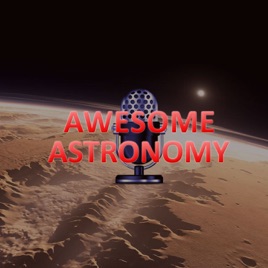
4.7
114
320
AWESOME ASTRONOMY
Paul & Dr Jeni
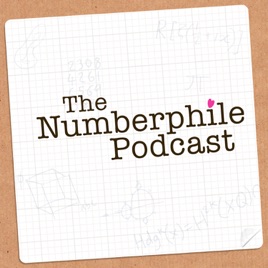
4.9
433
51
The Numberphile Podcast
Brady Haran
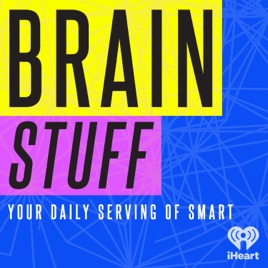
4
1592
2001
BrainStuff
iHeartPodcasts
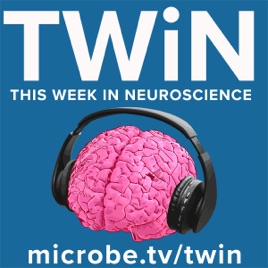
4.8
75
48
This Week in Neuroscience
Vincent Racaniello
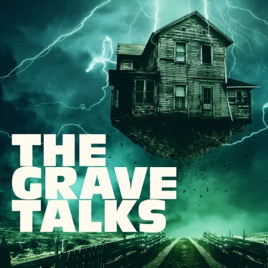
4.6
2049
1471
The Grave Talks | Haunted, Paranormal & Supernatural
Ghost Stores, Haunted, Paranormal & Supernatural Stories
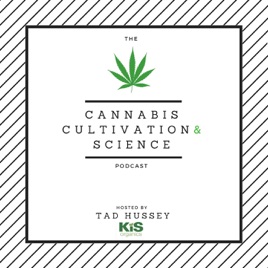
4.8
678
125
Cannabis Cultivation and Science Podcast
Tad Hussey
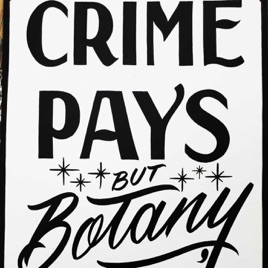
4.9
431
180
Crime Pays But Botany Doesn't
Tony Santore
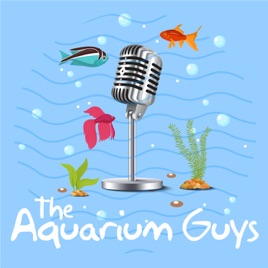
4.6
110
114
The Aquarium Guys
Aquarium Guys Studios
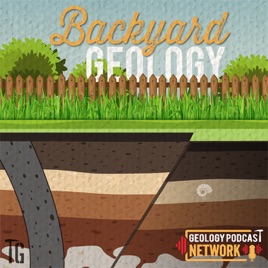
5
4
26
Backyard Geology
TravelingGeologist
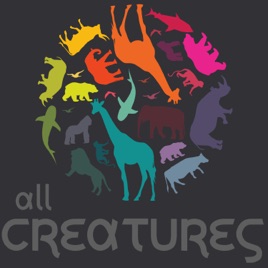
4.8
450
410
All Creatures Podcast
All Creatures Podcast



